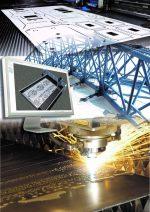Digital Twins a catalyst to fulfilling sustainability agenda
Organisations implement digital twins to understand and predict their energy consumption and emissions. According to the ‘Digital Twins: Adding Intelligence to the Real World’ report from the Capgemini Research Institute, 60 per cent of organisations across major sectors are leaning on digital twins1 as a catalyst to not only improve operational performance, but also to fulfil their sustainability agenda. By being able to simulate the physical world, digital twins can help organisations to better utilise resources, reduce carbon emissions, optimise supply and transportation networks, as well as increase employee safety. The report reveals that digital twin implementations are set to increase by 36 per cent on average over the next five years. This indicates a growing appetite for digital twin technology across all major industries, such as automotive, aerospace, life sciences, and energy and utilities among others, driven by organisations looking to advance their digital transformation journeys and adding intelligence to operations along the value chain. Organisations surveyed reported that cost-saving benefits (79 per cent) and technological advancement (77 per cent) are key drivers of their digital twin investments. The research also found that 57 per cent of organisations agree that digital twin technology is pivotal to improving sustainability efforts, which reflects the growing trend of businesses keen to deliver on their Environmental Social Governance (ESG) promises. Digital twins offer flexible ways of working to mitigate risks and extend collaboration, thereby providing a unique opportunity to increase profitability while optimising the use of resources along the value chain. Over one third (34 per cent) of organisations surveyed reported having already implemented digital twins at scale to understand and predict their energy consumption and emissions. Consumer products and energy and utilities industries are leading the way in this use case, with 52 per cent and 50 per cent respectively utilising the […]









